Bita River Report Card Workshop - The Orinoco River Basin, Colombia
Alexandra Fries · | Environmental Report Cards | Science Communication | Applying Science |This blog is part of the Basin Report Card Initiative: a partnership between the World Wildlife Fund (WWF) and the University of Maryland Center for Environmental Science (UMCES)
On August 9th, 2015, Simon Costanzo and I traveled from Bogota, Colombia to Puerto Carreño, Vichada, Colombia for the Bita River Report Card Workshop. This was the second of three workshops that will occur in Colombia, to develop report cards for three tributaries of the Orinoco River. Along with Simon, Sarah Freeman from the WWF office in Washington DC, also traveled to and attended the meeting. The first afternoon of meetings, we had a press conference, introductory talks, and a hike to view the rivers we’re working on.

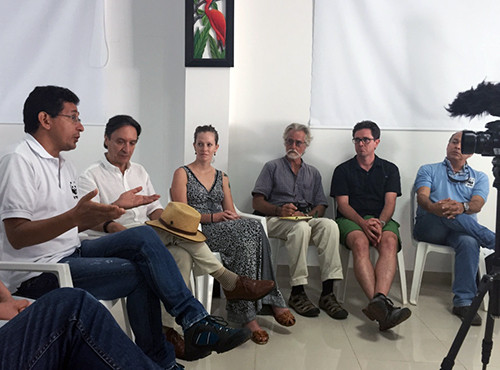
The workshop itself was held in a military complex for the Armada Nacional (Navy). There were 17 organizations in attendance with over 40 participants, all helping to identify the environmental, social, and economic indicators that make up the Bita River Report Card.
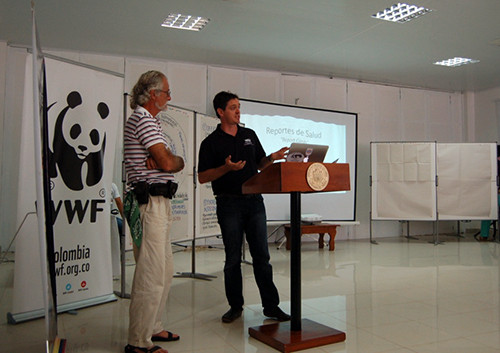
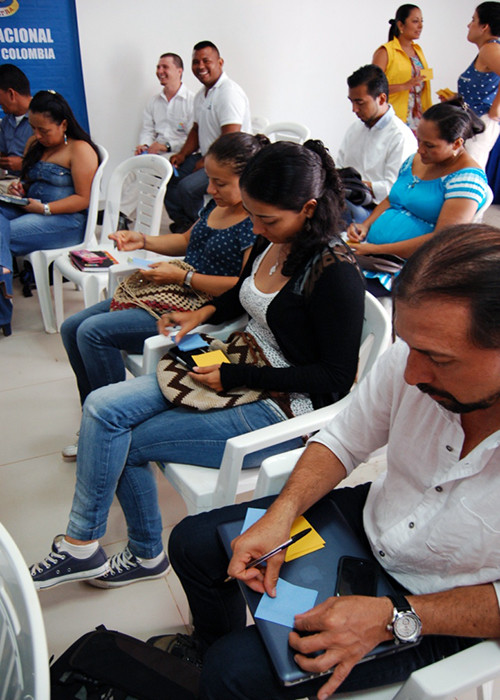
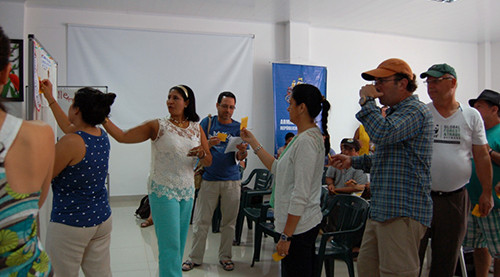

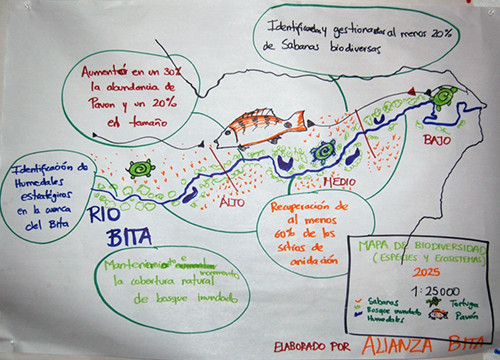
The last night of the workshop, Simon, Luis Herman from WWF Colombia, and Clarita Bustamante from Humboldt Institute all received medals from the Navy for their work on this project.
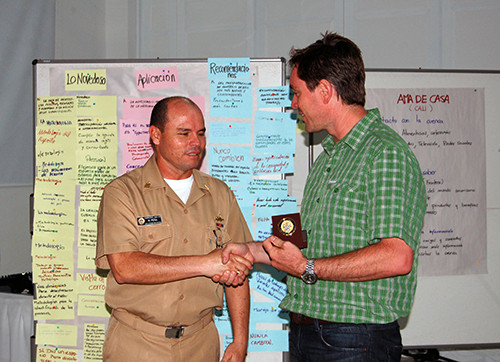
The next morning, after the workshop, twelve members of the team from UMCES, WWF, WWF Colombia, and Omacha Foundation all went out on a boat ride to see dolphins on the Orinoco River. A few people even went swimming with the dolphins.
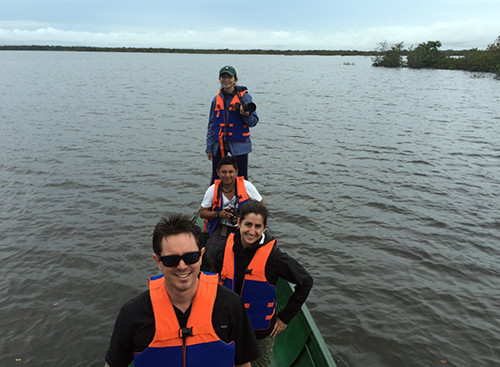
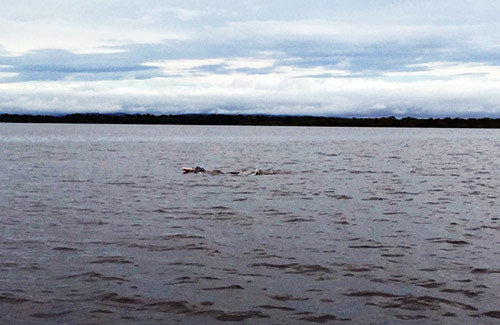
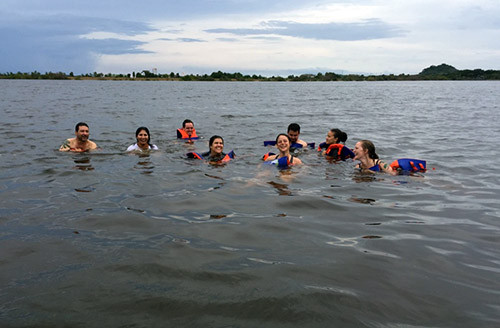
Later that day after returning to Bogota, we went to do a radio interview before flying back to the United States.
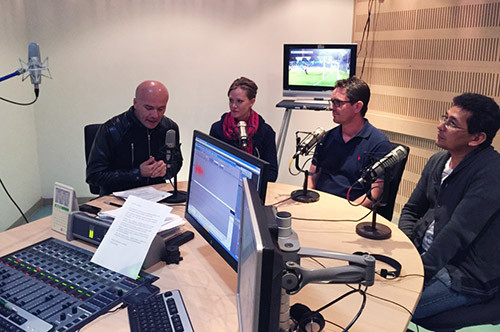
I’m looking forward to our third workshop later this month, which will be in San José del Guaviare for the Guaviare River Report Card!
About the author
Alexandra Fries

Alexandra is a Program Manager at the Integration and Application Network (IAN) based at the University of Maryland Center for Environmental Science in Annapolis MD. Alexandra’s work in environmental management has been focused on assessment, monitoring, and management of aquatic, marine, and terrestrial ecosystems. Alexandra has extensive experience in data analysis, synthesis, mapping, interpretation, and communication. Alexandra has experience working with a diverse group of partners including those in local, state, and federal government, non-governmental organizations, non-profit organizations, private industry, and academia. Within IAN, Alexandra conducts data analysis, synthesis, and communication by completing environmental report cards, updating the IAN website, and conducting science communication courses. Alexandra also creates science communication materials such as diagrams, posters, presentations, newsletters, and reports using Adobe Creative Suite, Microsoft Office Suite, and ArcGIS. Alexandra has experience managing projects and staff on local and international projects, liaising directly with partners and colleagues, and providing insights on project direction and goals.